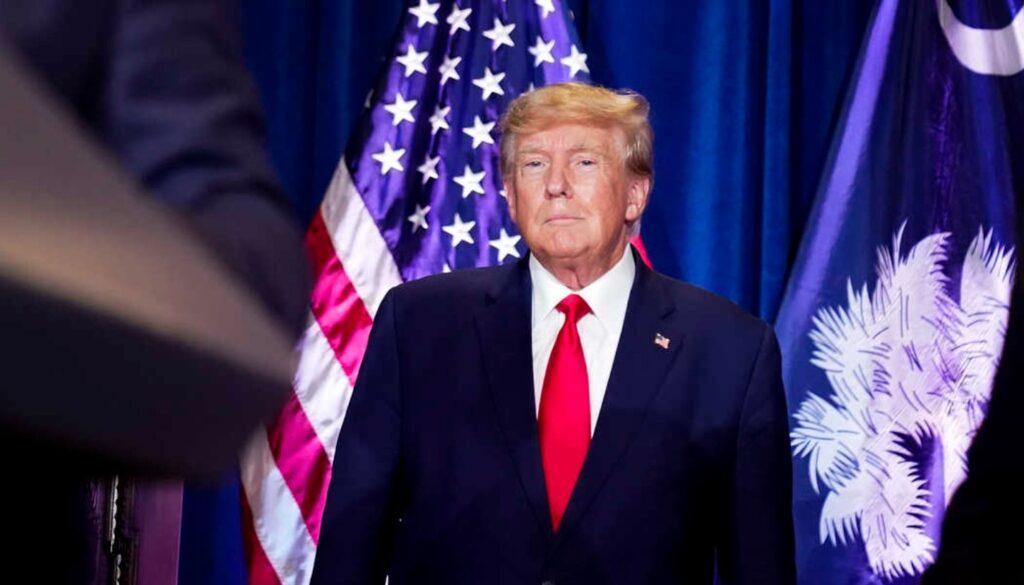Former President Donald Trump and 18 of his associates have been indicted by a grand jury in Fulton County, Georgia, on charges of conspiracy, racketeering, and election interference. The indictment, which was unsealed on Monday, accuses Trump and his allies of trying to unlawfully overturn the results of the 2020 presidential election in Georgia, where President Joe Biden won by a narrow margin.
Trump’s unprecedented legal troubles
The Georgia indictment is the fourth criminal case that Trump is facing, following federal charges in Washington, D.C., New York, and Florida. All of these cases stem from Trump’s attempts to cling to power after losing the 2020 election, which culminated in the deadly insurrection at the U.S. Capitol on January 6, 2021. Trump is the first former president in U.S. history to face criminal prosecution.

Unlike the other cases, however, the Georgia indictment is based on state law, which means that Trump cannot pardon himself or his co-defendants if he is reelected in 2024. He also cannot dismiss the Fulton County prosecutors who are pursuing the case, as they are elected officials. The indictment alleges that Trump and his allies engaged in a “criminal enterprise” that involved multiple acts of racketeering activity in Georgia and other states.
The evidence against Trump and his co-defendants
The indictment cites several instances of Trump and his allies trying to pressure Georgia officials to overturn the election results, including:
- A phone call on January 2, 2021, in which Trump asked Georgia Secretary of State Brad Raffensperger to “find” enough votes to make him the winner. The call was recorded and leaked to the media.
- A letter on December 28, 2020, in which Trump urged Georgia Governor Brian Kemp to convene a special session of the state legislature to appoint new electors who would vote for him.
- A meeting on December 23, 2020, in which former White House chief of staff Mark Meadows and former Justice Department lawyer Jeffrey Clark tried to persuade acting Attorney General Jeffrey Rosen to support a lawsuit challenging Georgia’s election results.
- A series of false and misleading statements made by Trump’s lawyers Rudy Giuliani, Sidney Powell, Jenna Ellis, John Eastman, and Kenneth Chesebro in various lawsuits and public forums, claiming that there was widespread fraud and irregularities in Georgia’s election.
The indictment also names six unindicted co-conspirators who allegedly aided and abetted Trump’s scheme, including four unnamed attorneys, an unnamed Justice Department official, and an unnamed political consultant.
The possible consequences for Trump and his co-defendants
The indictment charges Trump and his co-defendants with one count of conspiracy to commit racketeering, a felony that carries a maximum sentence of 20 years in prison and a fine of up to $25,000. It also charges them with 10 counts of making false statements, 10 counts of filing false documents, 10 counts of tampering with evidence, five counts of violating oath of office, four counts of solicitation to commit election fraud, and one count of obstruction of justice. Each of these counts is a misdemeanor that carries a maximum sentence of one year in jail and a fine of up to $1,000.
The indictment also seeks forfeiture of any property or proceeds derived from the alleged criminal enterprise.
Trump and his co-defendants have until August 25 at noon to surrender at the Fulton County jail, where they will be booked and processed. They will not be allowed to appear at the courthouse for their initial arraignment, which could be held virtually. They will have to enter a formal plea to the charges at a later date.
Trump has denied any wrongdoing and called the indictment a “witch hunt” by Fulton County District Attorney Fani Willis, a Democrat. He has also tried to disqualify Willis from the case, citing her public comments about the investigation. His lawyers are expected to challenge the indictment on various grounds, including jurisdiction, statute of limitations, double jeopardy, and selective prosecution.
